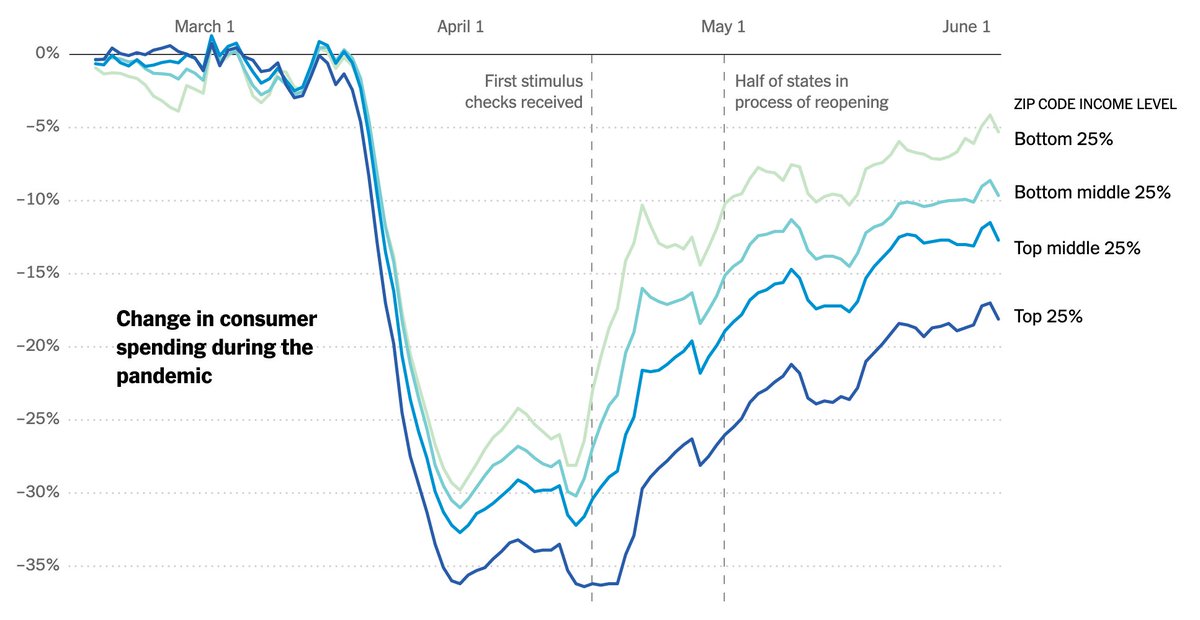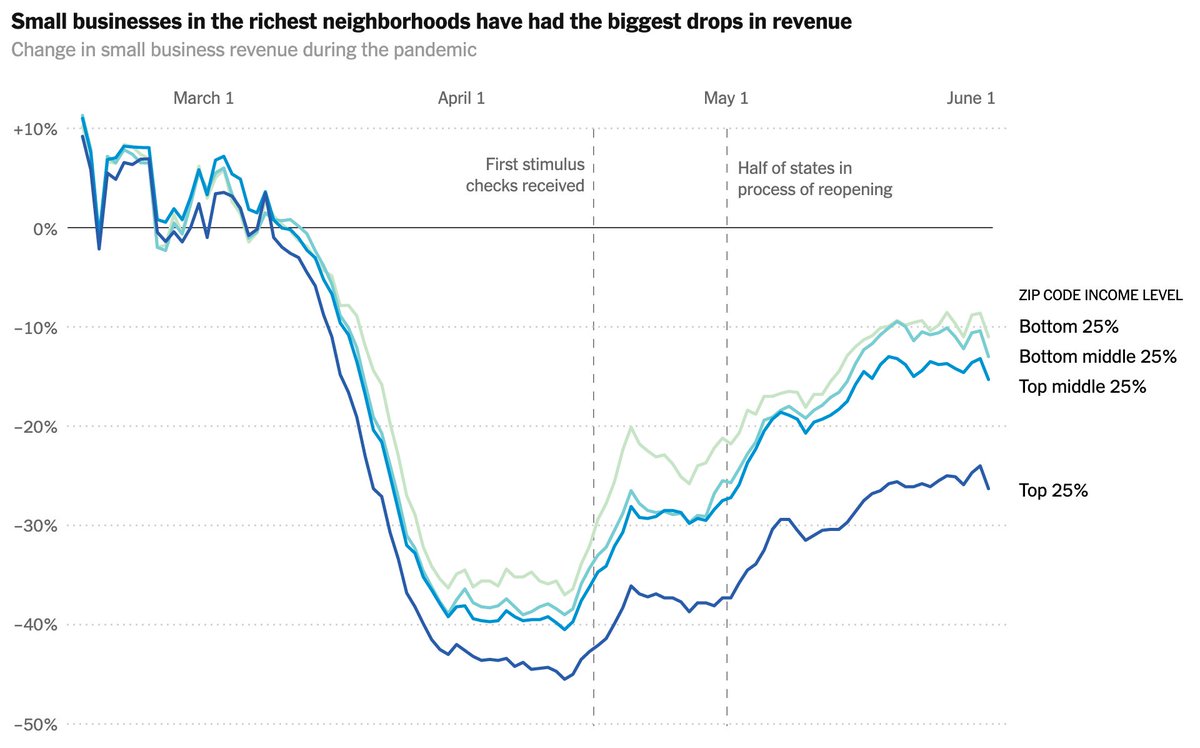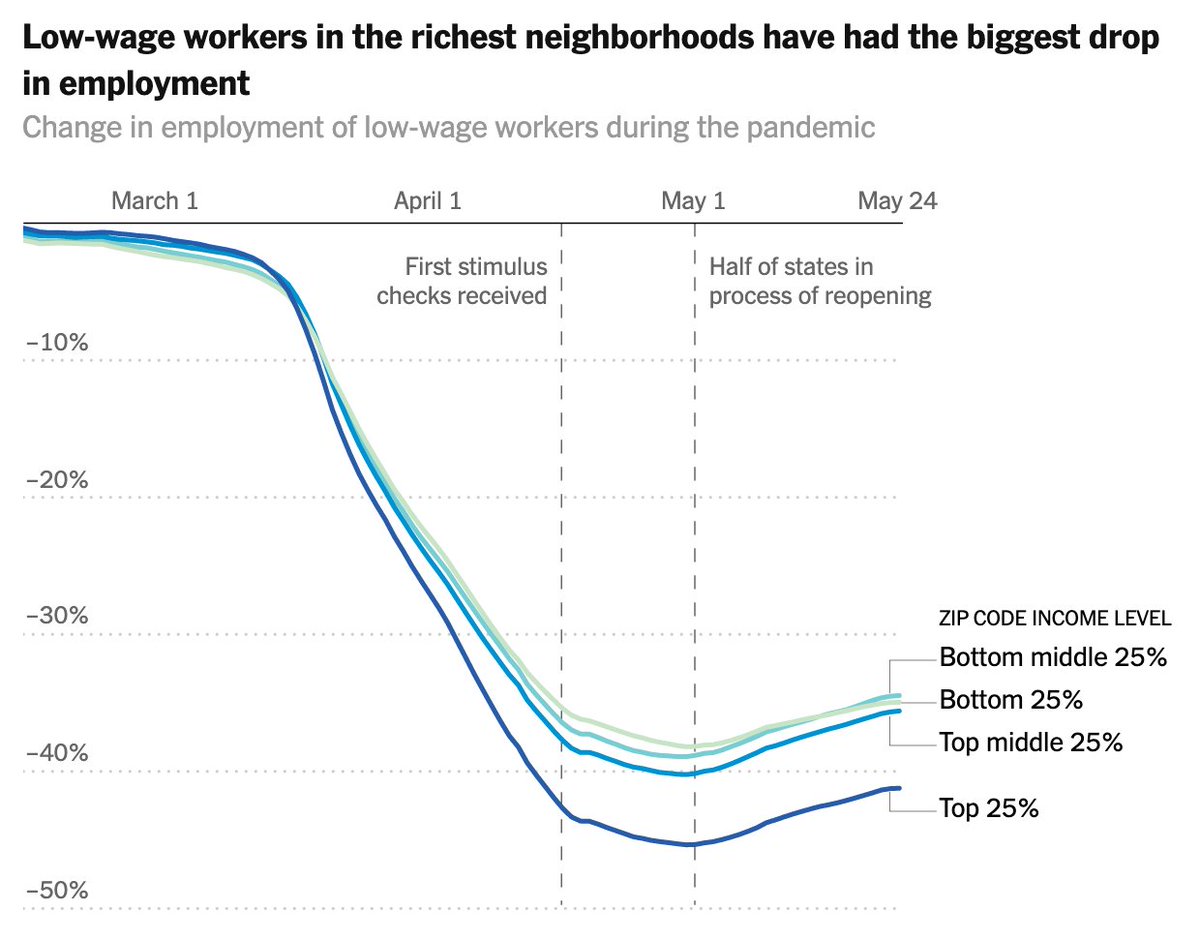The rich have cut spending more than everyone else in the coronavirus recession. And their spending has crept back much slower.
That’s bad for all of the lower-wage workers – servers, nannies, uber drivers, hotel workers -- who live off that money. w/ @aliciaparlap
That’s bad for all of the lower-wage workers – servers, nannies, uber drivers, hotel workers -- who live off that money. w/ @aliciaparlap
Data shown here comes from new work by @nhendren82 @michaelstepner @John_N_Friedman Raj Chetty.
Some of their prior work has pointed to the benefits of proximity to the rich for the poor. In the pandemic, the opposite is true: Poorer workers in richer places are hurting more.
Some of their prior work has pointed to the benefits of proximity to the rich for the poor. In the pandemic, the opposite is true: Poorer workers in richer places are hurting more.
Here are small business revenues by neighborhood income quartile.
Those revenues are down a lot more in the richest places.
Those revenues are down a lot more in the richest places.
The economy has changed over time in ways that exacerbate these patterns.
As income inequality has grown, so has consumption inequality. That means the rich drive more spending than they used to. And more low-wage workers depend on that spending than used to be the case.
As income inequality has grown, so has consumption inequality. That means the rich drive more spending than they used to. And more low-wage workers depend on that spending than used to be the case.
This same very strange economic shock – one where people with plenty of money are afraid of in-person spending – likely wouldn’t have rippled from the rich to the poor in the same way 50 years ago.
Think of this in relation to this @KevinQ piece about rich NYC neighborhoods emptying out: https://www.nytimes.com/interactive/2020/05/15/upshot/who-left-new-york-coronavirus.html
Another consequence of that is that all the bartenders, servers and nail technicians who worked there have lost their jobs.
Another consequence of that is that all the bartenders, servers and nail technicians who worked there have lost their jobs.
“One of the things this crisis has made salient is how interdependent our health was,” @michaelstepner said. You cough on someone else and you transmit the virus.
The economy is full of interdependencies, too. For many lower-wage workers, they depend on the rich spending money.
The economy is full of interdependencies, too. For many lower-wage workers, they depend on the rich spending money.
We show you many of these big-picture patterns here: https://www.nytimes.com/2020/06/17/upshot/coronavirus-spending-rich-poor.html
More detailed data is also public here: https://tracktherecovery.org/
More detailed data is also public here: https://tracktherecovery.org/

 Read on Twitter
Read on Twitter




